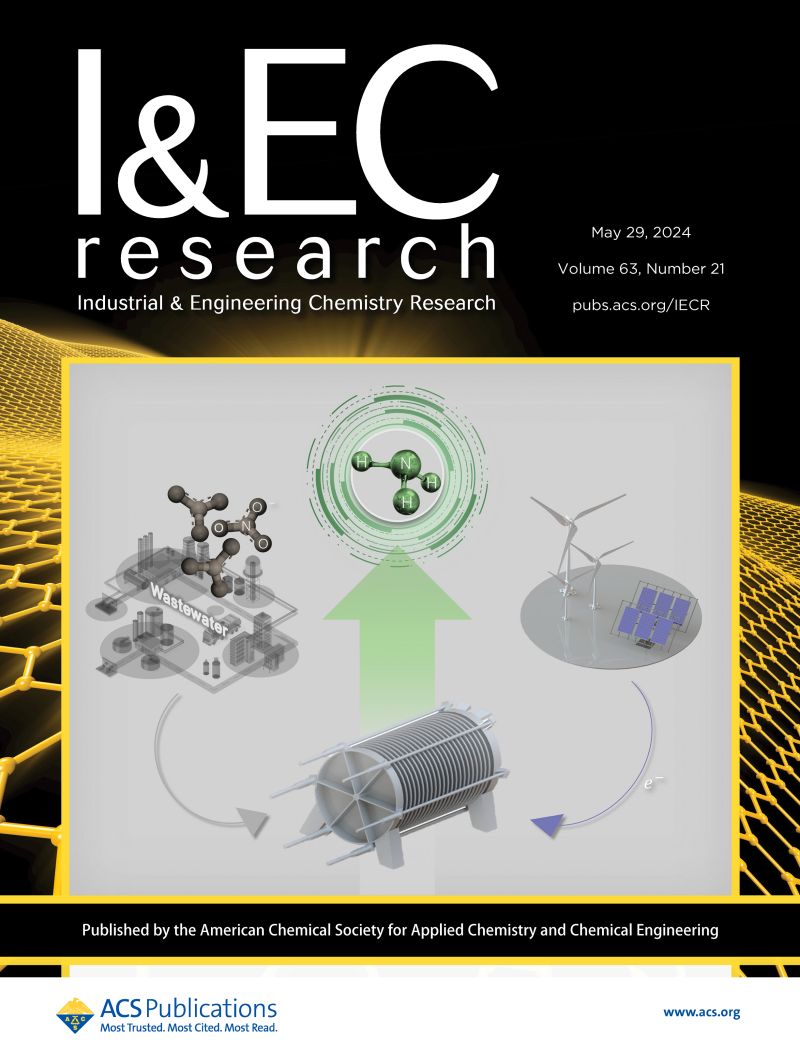Preparation and Study of Fluorosilyl Methacrylate Polymer Emulsion and Modified Coating Based on Perfluorinated Branched Short Chains
IF 3.8
3区 工程技术
Q2 ENGINEERING, CHEMICAL
引用次数: 0
Abstract
Fluorinated methacrylate polymers have been widely applied in the coating field due to their low surface energy, high thermal stability, and high chemical stability. However, traditional fluorinated methacrylate polymers contain environmentally unfriendly long fluorocarbon chain groups. These polymers are extremely difficult to degrade and can easily cause harm to the environment and human health. For this purpose, this paper took fluorinated methacrylate containing perfluorinated branched short chains as the main fluorinated monomer to obtain the polymer emulsions PFSA and their corresponding coating. Then, the emulsions were modified with silica sol to construct the PFSA4/SiO2-modified coating. The structures of the emulsion and the micelle state were characterized. The surface morphology, surface chemical composition, wetting performance, acid and alkali resistance, and self-cleaning performance of the constructed coating were studied. The results showed that PFSA had high hydrophobicity, with its water contact angle (WCA) value ranging from 95.2° to 119.3°. After modification with silica sol, the contact angle increased, being greater than 150°, with the highest reaching 158.4°, achieving a superhydrophobic state. And the PFSA4/SiO2-modified coatings possessed high acid and alkali resistance, as well as self-cleaning properties.

氟化甲基丙烯酸酯聚合物具有低表面能、高热稳定性和高化学稳定性的特点,因此被广泛应用于涂料领域。然而,传统的氟化甲基丙烯酸酯聚合物含有不环保的长碳氟链基。这些聚合物极难降解,很容易对环境和人类健康造成危害。为此,本文以含有全氟支链短链的含氟甲基丙烯酸酯为主要含氟单体,得到了聚合物乳液 PFSA 及其相应的涂层。然后,用二氧化硅溶胶对乳液进行改性,构建出 PFSA4/SiO2 改性涂层。对乳液的结构和胶束状态进行了表征。研究了所构建涂层的表面形貌、表面化学成分、润湿性能、耐酸碱性和自清洁性能。结果表明,PFSA 具有较高的疏水性,其水接触角(WCA)值在 95.2° 至 119.3° 之间。用硅溶胶改性后,接触角增大,大于 150°,最高达到 158.4°,达到超疏水状态。PFSA4/SiO2 改性涂层具有很高的耐酸碱性和自洁性。
本文章由计算机程序翻译,如有差异,请以英文原文为准。
求助全文
约1分钟内获得全文
求助全文
来源期刊

Industrial & Engineering Chemistry Research
工程技术-工程:化工
CiteScore
7.40
自引率
7.10%
发文量
1467
审稿时长
2.8 months
期刊介绍:
ndustrial & Engineering Chemistry, with variations in title and format, has been published since 1909 by the American Chemical Society. Industrial & Engineering Chemistry Research is a weekly publication that reports industrial and academic research in the broad fields of applied chemistry and chemical engineering with special focus on fundamentals, processes, and products.
 求助内容:
求助内容: 应助结果提醒方式:
应助结果提醒方式:


